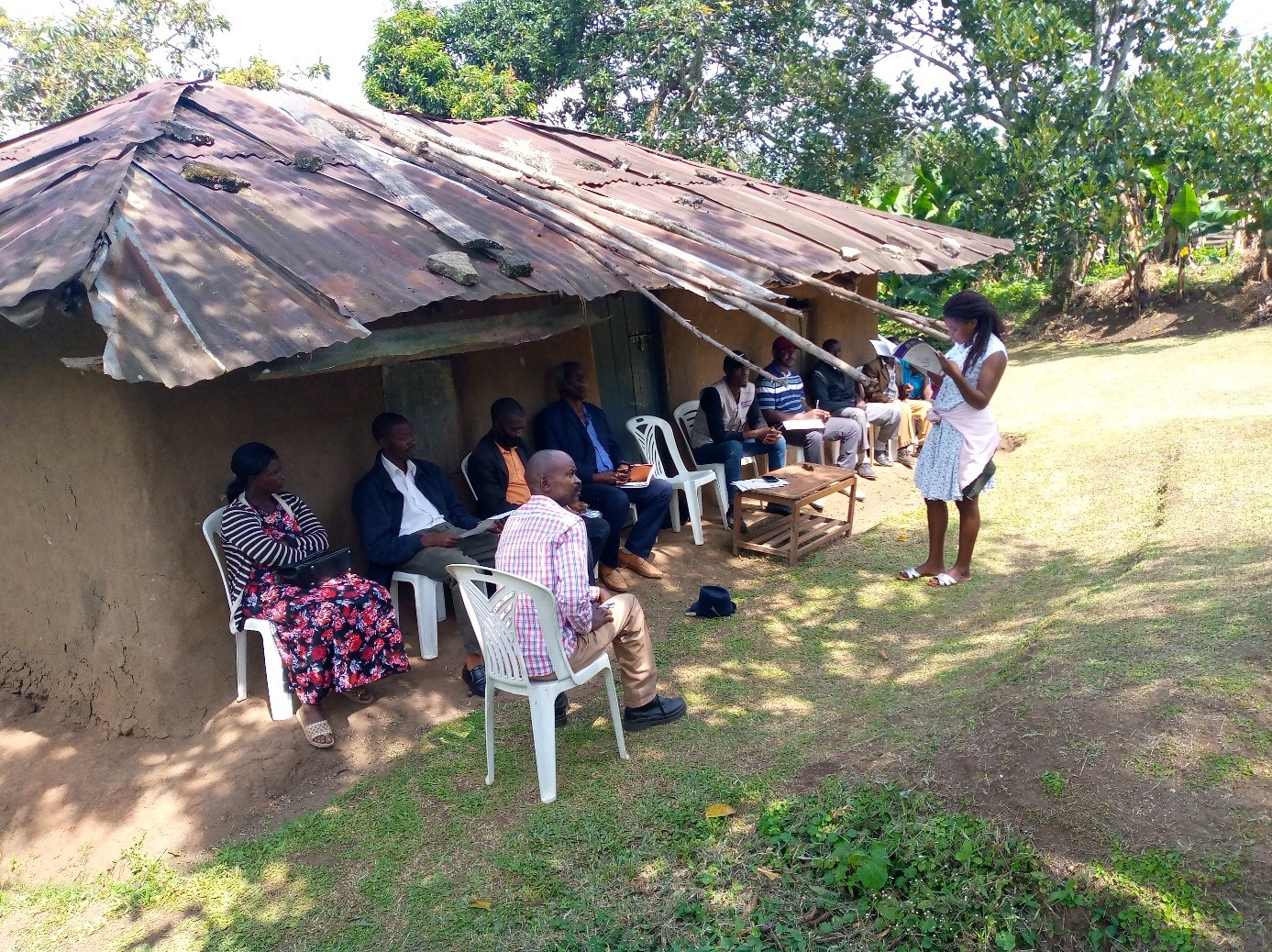Jane’s mother, Atwine, died testate in 2019 and was survived by five children. Atwine passed on before she could receive her share from her deceased father’s estate (Jane’s grandfather) who died without leaving a will. In Atwine’s will, she left the share of the land she would have gotten from her deceased father’s estate to her five children.
However, the respondent (Jane’s cousin) who is a son to Atwine’s brother barred Jane and her siblings from getting a share of the estate. This issue disturbed Jane and forced her to report the matter to different offices including the local council offices and the Community Development Officer (CDO) Karambi zone, North Division. The said officer (CDO) wrote a letter inviting the respondent (Jane’s cousin) to attend the mediation session such that the matter could be settled amicably but the respondent refused to show up.
That is when the CDO wrote a referral letter to our Fort Portal office requesting us to intervene and advise both parties accordingly. Mediation sessions were held and all parties present were sensitized about succession laws. At the end of the mediation, all parties disclosed their opinions and the respondent requested the office to give him time and allow him to first have a meeting with the beneficiaries and clan members. That meeting did not bear any fruits and this is when JCU held locus mediations in the presence of clan leaders, The Mayor, CDO, Police Community Liaison Officer and Local Council members.
During one of the locus mediations, the respondent produced a certificate of customary tenancy in the names of his late father and even receipts showing that his father used to pay Busulo fees since the land is mailo in Obukama Territory. The present leaders requested JCU to first consult whether the certificate grants ownership and invited the Kingdom caretaker (Omujweki Wobukama) for further guidance about the certificate of customary tenancy. It turned out that the certificate of customary tenancy indeed doesn’t confirm the ownership of the land, instead a person holding such a certificate owns a Kibanja and the land itself belongs to the Obukama Kingdom as explained by the Kingdom caretaker who is responsible for issuing those certificates in Tooro Kingdom.
That meant that the respondent’s father did not own the land since he never had any purchase agreement to show that he purchased the Kibanja from his father but got the certificate because he was left as an heir. This also meant Atwine (Jane’s Mother) was a beneficiary on the Kibanja since she was a sister to the respondent’s father and their father, at his passing, had left both of them on that land. The respondent agreed to give Jane her mother’s share within one month from the date of mediation. Jane was happy to receive her late mother’s share and she appreciated the knowledge received about succession law and the effects of certificates in land law.

